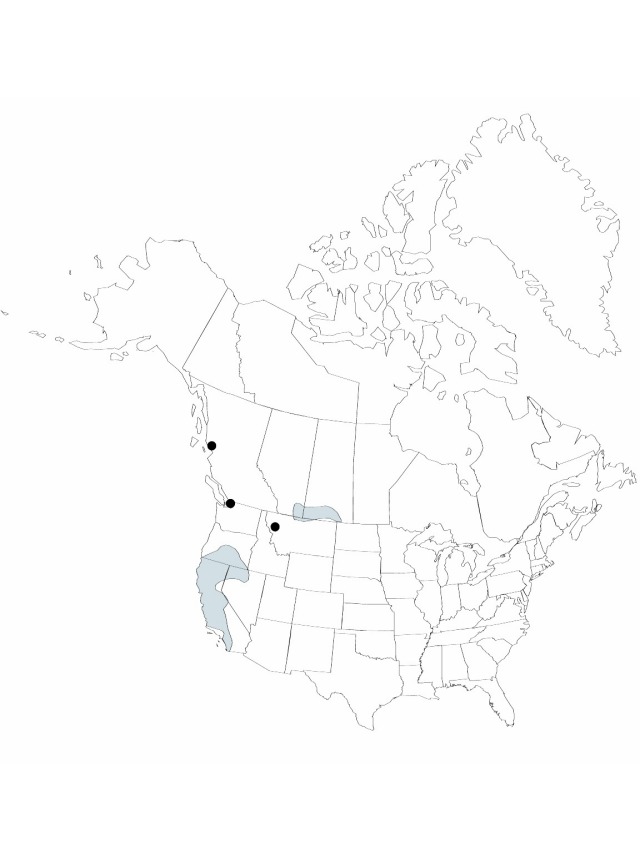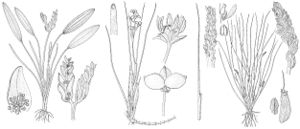Lilaea scilloides
Publ. Inst. Invest. Geogr. Fac. Filos. Letras Univ. Buenos Aires A 10:26. 1925.
Herbs, to 30 cm. Leaves to 35 cm; sheath 2–5 cm; blade 15–30 cm × 0.9–3.1 mm. Inflorescences axillary or sessile, the axillary scapose, 0.3–4 cm × 1.5–8 mm; scape 8–10 cm × 0.5–1.5 mm.; sessile inflorescences solitary flowers. Flowers sessile; perianth 1–1.5 × 0.5 mm; anther 0.5 × 0.4 mm; ovary 1–2 mm; style 0.5 mm (bisexual), 30 cm (pistillate). Fruits 2–5 mm. 2n = 12.
Phenology: Flowering summer.
Habitat: Shallow water and adjacent mud flats
Elevation: 0–1700 m
Distribution

Introduced; Alta., B.C., Sask., Calif., Mont., Nev., Oreg., Wash., Mexico, South America (Argentina), South America (Chile), South America (Ecuador), South America (Peru), se Australia
Discussion
The taxonomic position of Lilaea is uncertain. The genus often is treated as a monotypic family (Lilaeaceae) that is closely allied to the Juncaginaceae. Lilaea, for example, possesses lactifers, unknown in other Juncaginaceae. The lactifers, plus uncertainty regarding the interpretation of floral morphology in Lilaea, prompted a decision to retain it in the Liliaeaceae pending further study (P. B. Tomlinson 1982). Embryologic, cytologic, and palynologic evidence, however, indicate a close relationship between Lilaea and other genera of the Juncaginaceae. Despite the presence of lactifers, Lilaea has been considered similar enough to warrant the inclusion of the genus in the Juncaginaceae (A. Cronquist 1981). Molecular evidence also corroborates the close relationship between Lilaea and Triglochin (D. L. Les and R. R. Haynes 1995).
Selected References
Lower Taxa
"not elongating" is not a number.
